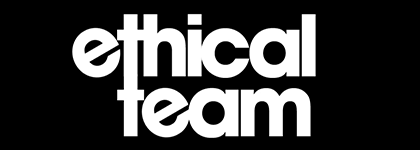How product certification can win consumers’ hearts and minds

The age of restorative and regenerative brands is taking center stage. In an era of heightened environmental challenges and climate change in the daily news, there’s mounting evidence consumers are differentiating brands by their authenticity, values and sustainability credentials at an unprecedented rate.
Branding always has played a vital role in purchasing decisions. But what’s behind the label as we witness a cultural overhaul and the rise of “purpose-driven” brands?
Alongside this growing consumer consciousness and awareness, we’re witnessing the mainstreaming of certification, with the surge in certified products appearing in our weekly shopping baskets — from coffee in Lidl, chocolate in Asda to bananas in Aldi and Tesco. For example, in the United Kingdom, you’re spoiled for choice for where to buy your coffee from Rainforest Alliance Certified farms: from McDonald’s, Costa, EAT or POD.
Everyday consumers can make ethical purchasing decisions in their daily lives and vote with their wallets. Some would argue retailers exist only as curators of products and services and soon would stop stocking items that didn’t sell. Consumers, therefore, are holding ever-increasing power when it comes to “hearts and minds” issues based on what a brand is conveying.
According to the Edelman 2018 Earned Brand Report, “Brands are now being pushed beyond their classic business interests to become advocates for a better society.”
Today, opinions count, and as consumers evolve, they’re becoming increasingly educated and environmental savvy, thus certifiers also must evolve along with them to ensure radical transparency at the touch of a smart-phone button. According to the 2018 Edelman “Trust Barometer, The State of Trust in Business” report (PDF), 63 percent of respondents agreed that “A good reputation may get them to try a product — but unless they come to trust the company behind the product, they will soon stop buying it, regardless of its reputation.”
Part of the solution
The rise of sustainable products and services has allowed consumers to become part of the solution and not just the problem by being able to differentiate a brands sustainability values and credentials about its supply chain through its certification. This retail tipping point slowly has been taking place as both retailers and producers have sought to ensure product traceability as a necessity and commercial survival strategy.
However, this silent food retail revolution has been occurring in the background for some time, as most responsible brands have sought to measure the impact of their supply chain and ensure that they can identify where, how and when something has been produced to meet their environmental commitments.
In fact, companies are in a unique position to act as drivers of change and influence consumption habits. For better or worse, they profoundly affect our lives, and not just through our wallets. From Apple, Google, Amazon, Microsoft, Uber and McDonald’s to Facebook, major global corporations possess unparalleled scale, power, reach and influence with the potential to use their resources for good, and help ensure a fairer, safer and more equitable world for us all.
However, we really must rethink the terminology and now substitute the word “sustainability” with the word “responsibility” in business. In our “conversations for action,” the business of business is unequivocally humanity in an era of global climate change and other unprecedented environmental challenges ahead.
Hearts and minds
The clear drivers influencing shopping habits are the proliferation of product choices, making differentiation a hearts-and-minds issue, to breakthroughs in technological innovation at the farm level, enabling data collection, measurement and benchmarking against established metrics.
These drivers are contributing to the rise in purpose-driven brands. And because of the internet age, the provenance of a brand and its supply chain can be checked in seconds, which also adds a risk to an organization’s reputation simply overnight. In fact, a report by Deloitte shows that 87 percent of millennials believe that the success of a company should be measured by its social and environmental impact, as well as on its financial performance.
As millennials are the retail food shoppers of the future in a competitive retail environment, it would be natural to think that all brands eventually will embed supply chain transparency into their operations to maintain market share as much as they would want to “do the right thing.”
Fortunately, our food producers, farmers and food supply chains have become faster at disclosing their environmental and social data as a result of advances in digital technology and are helping to provide radical transparency. Alongside the evolution of sustainable packaging solutions, which are driving the public discourse, it is arguably almost second nature for consumers to make more enlightened purchasing decisions based on their products’ origins, production techniques, packaging, gender equality, carbon emissions and environmental considerations.
According to another recent report, “The New Sustainability: Regeneration” by advertising agency JWT, British consumers recently have mobilized and become highly concerned about single-use plastics, with 60 percent believing that products are overpackaged. In fact, many shoppers see familiar certifications as much a part of intrinsic packaging design as an ethical brand promise. This demonstrates that the brand is “doing their bit” across all these issues and is somewhere on the sustainability journey now that eco-consciousness has gone mainstream.
Supply chain insights
So how does one’s choice of morning coffee, tea, banana or chocolate really make a difference? Can certification provide the guarantees necessary? How do we communicate that sustainability is a journey and not an endpoint?
Certification is an important tool for making sectors more sustainable. It helps all the players to work towards unified standards: It sets the standards and provides independent verification against them.
Three key points about certification:
- Certification can offer deep supply chain insights that are hard to achieve otherwise and a level of transparency that few other systems do.
- Certification forms the basis of a fully scalable system that engages both farmers and companies along the supply chain, bringing them together with markets and civil society resulting in positive impacts.
- It is most effective at catalyzing sustainable transformation when implemented within a larger context of collaboration between companies, NGOs, governments and others.
From a long-term perspective, certification helps ensure the future viability of farming and agriculture, which likely will confront increasing pressures from climate change and socio-economic factors. By applying good practices related to environmental management, worker health and safety, and farm productivity, certified farms are preparing to be able to deliver high-quality, sustainable produce in the future.
It’s never too late to build brand ethics into your marketing as sustainability has become synonymous with quality. It’s also clear that employees also want to work for purpose-driven brands. As polar explorer Robert Swan once said, “The greatest threat to our planet is the belief that someone else will save it.”
Join Mailing List
